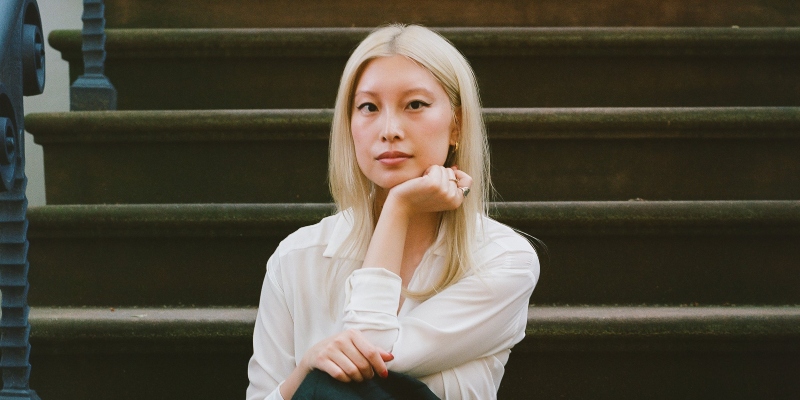
Delia Cai on the Gift That Immigrant Parents Give Their Children
In Conversation with Brad Listi on Otherppl
Delia Cai is the guest. Her debut novel, Central Places, is out now from Ballantine.
Subscribe and download the episode, wherever you get your podcasts!
From the episode:
Brad Listi: The next thing I wrote down: “sincere empathy for the mother, page 179, the big fight.” And then below that I wrote “plight of women immigrants.” And you’ve got to forgive me—I know there is a big fight, I wish I could remember the exact details. But I think that something you do very well in this book—there’s the romantic tension in the book, but there’s also the familial tension, and in particular the mother-daughter tension in the book that drives it.
And it’s a very delicate dance that you’re doing because the tension is very real, and the infractions committed by both Audrey and her mother against one another are very real and not always so pleasant. But you do it in a way that feels earned and human. You don’t dishonor the very real conflict and you don’t dishonor the very real love between them. Somehow they both exist. And that feels like how it is in most actual familial relationships, right? Any deep relationship, it’s never clean or black and white.
And then the other thing, too, is that by humanizing the mother character and making her plight understandable to the reader—like the loneliness she has endured in her life by sacrificing. She moved with Audrey’s dad. She gets pregnant. She forgoes her dreams of getting the PhD and having the professional life, and then to move to a place like Hickory Grove, Illinois, without a huge Asian American community or any Asian American community, really, to integrate with. The isolation of it is the point.
To be raising a child, the father’s off at work—you drew that very well. And even though her mother can often be very prickly on the page and a little bit absurd, even mean at times, I still loved her. It’s a hard thing to do. Did it take you a while to arrive at that level of dimensionality for her? In earlier drafts, was she more two dimensional and sort of just the opposition?
Delia Cai: Definitely. I thought this would be actually more of a mother-daughter book when I first started, because my mother immigrated to the US, and she had me pretty quickly. When you grow up with immigrant parents, you were taught that everything we have here, this is a success story. We came all the way here, we did all this stuff, and now look, it’s worked out. You’re going to college or whatever. And I think that the older I’ve gotten, I’ve thought about the necessity of telling that as a success story.
Sort of in the same way when I was watching the movie Minari, I thought that movie was so interesting because here you see these two Korean immigrants wavering. They’re like, why are we here? This isn’t really working out the way we thought it would. I think the mom wants to go back. I think about how important that narrative is when you’ve made this huge, incredible change in your life for you and your family. The only way you can really stick to it is to really believe this is better.
I’m kind of emotional about it now because I don’t think it’s something my parents have ever talked about. It’s one of those things where you can only look straight ahead. And so I’ve just been thinking a lot about the idea of opportunity and who gets to mess up in a way.
Because one of the breakthroughs I’ve had, understanding my own parents, was like, there are points when I’ve been a little lost or fumbled and just sort of been like, I don’t know if this job in New York is going to work out. I don’t know if this whole writers life is going to work out. And really understanding that that is the gift they’ve given me, and I can question and be unsure, whereas they were like, we cannot really question this. We’ve committed and we have to go through.
*
Delia Cai was born in Madison, Wisconsin, and grew up in central Illinois. She is a graduate of the Missouri School of Journalism and her writing has appeared in BuzzFeed, GQ, The Cut, and Catapult. Her media newsletter, Deez Links, has been highlighted in The New York Times, New York magazine, and Fortune. She is currently a senior correspondent at Vanity Fair and lives in Brooklyn.
Otherppl with Brad Listi
Otherppl with Brad Listi is a weekly podcast featuring in-depth interviews with today’s leading writers. All episodes—hundreds of them—are available for free. Listen via iTunes, Stitcher, iHeart Radio, or right here on Lit Hub. You can also download the Otherppl with Brad Listi app, available for iPhone and Android.



















